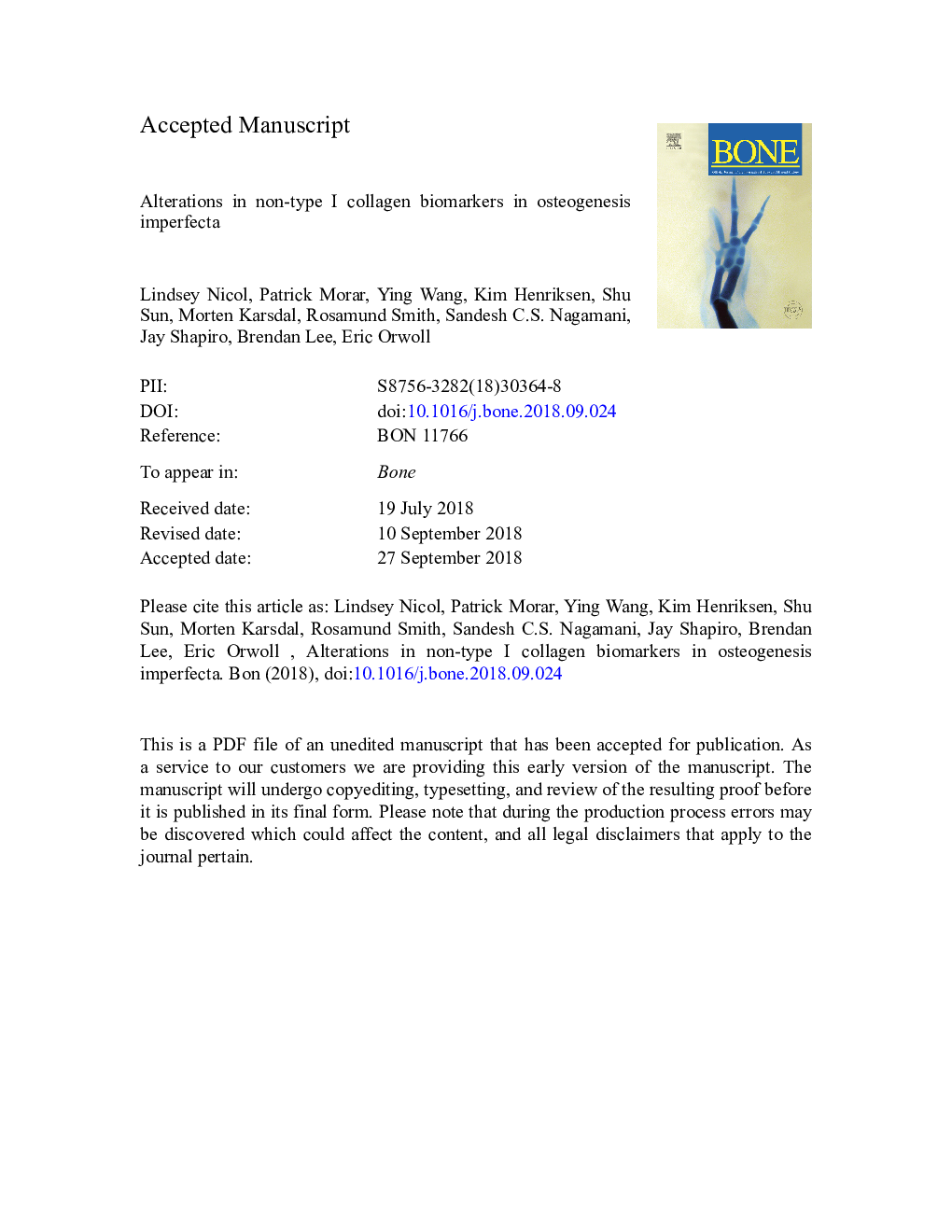| Article ID | Journal | Published Year | Pages | File Type |
|---|---|---|---|---|
| 11015307 | Bone | 2019 | 20 Pages |
Abstract
Osteogenesis imperfecta [1] is a rare disorder of connective tissue caused by abnormalities in the synthesis or processing of type I collagen. Type I collagen is the most abundant type of collagen and is expressed in almost all connective tissues. Given that type I collagen interacts with other collagens based in the extracellular matrix (ECM), we hypothesized changes in type I collagen in OI would result in perturbations in the homeostasis of other collagen types. We measured serum biomarkers of several non-type I collagens in patients with mild (type I) and moderate-to-severe (type III/IV) OI. Compared to controls, those with moderate-to severe OI had a higher mean level of the synthesis markers of collagen III (ProC3) (Pâ¯=â¯0.02), and levels of collagen V (ProC5) (Pâ¯=â¯0.07) were slightly, but not significantly, higher. Degradation markers of collage type IV (C4M2) (Pâ¯=â¯0.04) and type VI (C6M) (Pâ¯=â¯0.003) were also higher. In each case, a test for trend suggested levels were higher in moderate-to-severe OI, intermediate in mild OI, and lowest in controls (Pâ¯=â¯0.06-0.002). These changes supports the hypothesis that mutations in type I collagen induce a widespread alteration in the ECM, and that the diverse clinical manifestations of OI reflect an extensive disruption in ECM biology.
Keywords
Related Topics
Life Sciences
Biochemistry, Genetics and Molecular Biology
Developmental Biology
Authors
Lindsey Nicol, Patrick Morar, Ying Wang, Kim Henriksen, Shu Sun, Morten Karsdal, Rosamund Smith, Sandesh C.S. Nagamani, Jay Shapiro, Brendan Lee, Eric Orwoll,
